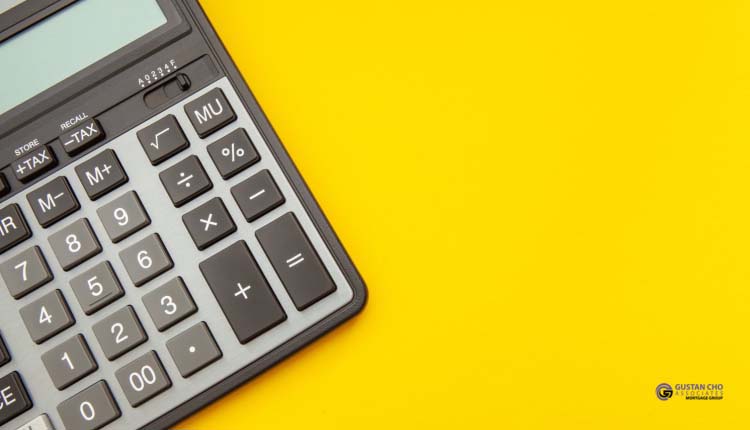In this blog, we will cover and discuss on ways on how can you get a mortgage after retirement. Seniors can qualify for a mortgage after retirement using retirement income and/or other sources of income. Tens of thousands of seniors purchase homes for one or many reasons after retirement. John Strange, a senior mortgage loan originator at Gustan Cho Associates says the following about how to get a mortgage after retirement:
Discover strategies and tips for securing a mortgage after retirement. Learn about financial planning, types of mortgages, and how to improve your chances of approval. Maximize your retirement years with the right mortgage solution.
Some need to downsize their homes, others move out of state to warmer climate destinations, and other want maintenance free living in senior communities and/or condominiums. You do not need a full time job to qualify for a mortgage after retirement. Senior homebuyers can qualify for a mortgage after retirement using retirement income and/or other alternative income sources.
Can Retirement Income Be Used For Mortgage?
Retirement income can be used to qualify for a mortgage only if the money from the retirement income is likely to continue for the next three years. Types of retirement income that can be use are social security income, disability income, 401k, Roth IRA, traditional IRA, pension accounts, and other types of retirement account.
To qualify for a mortgage, you do not need to be employed. Retired folks can qualify for a mortgage as long as they can provide their ability to repay their mortgage.
The retirement income needs to be proven that it will continue for at least three years after the date of the mortgage loan. Securing a mortgage after retirement can be complicated. Here’s some guidance on financial management, various mortgage types, and how to increase your chances of approval. Enjoy your retirement with the right mortgage solution.
Can a 65 Year Old Senior Get a 30-Year Mortgage With Social Security Income?
Adjusting to retired life can be a financial change as mortgages and mortgages come due. Understandably, one of the first questions retirees have is, how can I obtain a mortgage after I have stopped working. You may want to downsize, move to a different area, or want to purchase an investment property, you’ll need to know the options available and the criteria for getting a mortgage after retirement. This guide will explain the process and mortgage finance options available to retirees.
You will need to know the different types of mortgages available to retirees. These include home mortgages, retirement home mortgages, and reverse mortgages, among others.
These mortgages come with different pros and cons, based on an individual retiree’s needs and financial situation. There is no age that prevents someone to get a home purchase and/or refinance a mortgage loan. Under the Equal Credit Opportunity Act, lenders cannot discourage or prevent borrowers from obtaining a home mortgage based on their age. However, lenders will need borrowers to prove their ability to repay the home loan by documenting qualified income. Retired borrowers with social security income can qualify for a mortgage without a job and with only social security income.
Get a Mortgage After Retirement With Confidence
We help retired borrowers qualify every day with flexible guidelines and no overlays
Can Social Security Income Be Grossed Up For a Mortgage For Seniors?
Even retirees can apply for traditional mortgages, but the application procedures may differ in comparison to younger borrowers. To assess eligibility, lenders consider potential borrowers’ retirement income, assets, and credit history. To avoid issues or potential rejection, having a reliable income and a solid financial plan to manage the mortgage payment should also be considered.
Social Security Income can be used for mortgage qualification.
If someone is on social security income, lenders will allow borrowers to gross up the monthly social security income. HUD, allows senior borrowers to gross up social security income by 15% on FHA loans.
For example, if a borrower on social security income is receiving a monthly income of $1,000 from Social Security, we can modify the $1,000 gross monthly income by an additional $150 per month or 15% to reflect the borrower is making $1,150 on FHA loans. With conventional loans, non-taxable income can be grossed up by 25%. The grossing up method is an extreme help in qualifying borrowers on social security income.
Mortgage After Retirement Due To Downsizing With Social Security Income
Homeowners aged 62 years and older can take a reverse mortgage, which allows them to convert a portion of their home equity to cash. This mortgage also has the potential to offer retirees a stream of income; however, it is essential to be aware of its estate implications and the costs associated.
A large percentage of Americans decide to downsize to a smaller home when they retire or when their children leave the home and are on their own.
Many times they choose a smaller home but a more expensive home because it might be waterfront or golf course frontage. Even though borrowers might have a substantial down payment and a lot of assets, they might run into problems in obtaining a mortgage loan if they retire and qualify with only their social security income. There are options and creative ways of obtaining a mortgage for those planning on retiring.
Government Versus Conventional Mortgage After Retirement
Government-backed loans are mortgages that are guaranteed by the federal government. Private lenders originate, process, and fund government-backed mortgages. The government agency only acts as a mortgage insurer and not a lender. Government loans are only for one to four-unit residential owner-occupant mortgages. Home buyers of second homes and investment properties cannot qualify for government loans. You can only qualify for second homes and investment homes with conventional and non-QM mortgages.
However, if you do not have a primary home or are exiting a primary residence, you are eligible to qualify for a primary home purchase after you retire as long as you can provide documentation. Here are the three government loan programs in the United States:
- The United States of Housing and Urban Development (HUD) is the parent of The Federal Housing Administration and is in charge of FHA loans
- The U.S. Department of Veteran Affairs (VA) is in charge of VA loans
- The U.S. Department of Agriculture Rural Development (USDA) is in charge of USDA loans
The above government agencies are not lenders. Their role and function are to guarantee home loans originated by banks and lenders in the event homeowners default on their loans. The bank or lender that originated and funded the loan will get compensated for their loss by borrowers who defaulted on their government loans.
Can Someone Who Is Retired Get a Conventional Loan After Retirement?
Many retired borrowers want to avoid getting an FHA mortgage after retirement because they do not want to pay the hefty FHA upfront and annual mortgage insurance premium. Fannie Mae and Freddie Mac set the agency mortgage guidelines on conventional loans. You cannot qualify for mortgages on second homes with FHA loans.
Government-backed loans are for primary owner-occupant homes only. Conventional loans are for primary homes, second homes, and investment properties.
Conventional loans are home loans that are not insured nor guaranteed by the government but are mortgages originated and funded by banks and lenders and sold to Fannie Mae and/or Freddie Mac. In order for Fannie Mae and Freddie Mac to purchase conventional loans, the mortgages need to conform to Fannie Mae or Freddie Mac’s Mortgage Guidelines. Home Buyers can purchase second homes and investment properties with Conventional loans.
How Difficult Is It To Get a Mortgage When You Are Retired?
A frequently asked question by retired borrowers is how difficult is it to get a mortgage when you are retired. Many retired homebuyers prefer to qualify and get approved for a home purchase after retirement with a conventional loan to avoid FHA mortgage insurance premium.
FHA loans have a one-time 1.75% upfront FHA mortgage insurance premium and an annual 0,85% annual FHA mortgage insurance premium for the life of a 30-year fixed-rate FHA mortgage.
Conventional loans only require private mortgage insurance only if the borrower has greater than an 80% loan-to-value and/or are putting down less than a 20% down payment on a home purchase. The private mortgage insurance cancels if the borrower has at least a 80% loan-to-value on conventional loans. As long as you have a 620 credit score and can validate your income through traditional means and/or retirement income, it is not difficult to get approved for a conventional loan after retirement. Retired homebuyers can qualify for owner-occupant and/or second homes with a conventional loan. You can gross up to 25% of your social security income on conventional loans versus 15% gross-up on FHA loans.
Turn Your Retirement Income Into a Home Loan Approval
Use fixed income, assets, and Social Security to buy or refinance
Can A Retired Borrower Have Two Primary Residences?
Retired borrowers can only have one primary owner-occupant home at the same time. If a homeowner has a current home and has not yet retired yet but is shopping for a new home, that home needs to be bought as a second home. If the homebuyer is planning on buying a primary home when they retired in another state and is planning on renting out the current home, they can buy their future primary home as an owner-occupant home.
If the homebuyer who is planning on retiring has not yet retired and has no date when they will retire, they need to buy the second home as a second home and not a primary home.
This holds true even though the home buyer intends on occupying the second home purchase as a primary home at a later date. On the other hand, if the homebuyer has already retired and intends on exiting their current primary residence when they sell it or keep it as a rental, they can definitely buy the home they plan on living as a primary home as an owner-occupant home.
Second Home Purchase With Social Security Income
There are also lenders that provide special mortgages for retirees, which may offer longer amortization periods, lower down payment amounts, or payments that are in relation to income. Having these options to consider is beneficial in order to select a mortgage best fit for the market.
Retired homebuyers can purchase a primary residence home with social security income. Non-taxed social security income can be grossed up to 15% on FHA loans, and 25% on conventional, VA, and USDA loans.
What this means is if senior homebuyer only gets social security income, they can qualify for more money due to being able to gross up their tax-exempt social security income. For example, if a borrower gets a $1,000 monthly tax-exempt income, the borrower can gross up to $1,150 or 15% on FHA loans. Retired homebuyers can gross up to $1,250 per month or 25% on conventional, VA, and USDA loans.
Creative Ways of Getting Mortgage After Retirement
There are creative ways of going about financing a home for homebuyers who are planning on retiring but are currently employed. Let’s take a case scenario. Let’s assume retiree John is planning on retiring to Florida in several months. However, he wants to purchase a home when he moves to Florida and not rent.
Effective financial planning becomes essential when securing a mortgage becomes necessary in retirement. Planning should begin by looking at retirement income streams like pensions, Social Security, and any additional sources.
Mortgage payment amounts should be comfortably manageable based on the plan, and budgeting should also be created to align with it. Building an emergency fund is especially important to manage any additional unforeseen expenses that may be incurred. One way John can go about getting his Florida dream home is to see if he can purchase it while he is still employed full time as long as he can afford it. John should seek the advice of a Florida mortgage broker. John should see if he can purchase his Florida home as a second home with a conventional loan.
How Much Down Payment Is Required For Getting Mortgage After Retirement
Second homes’ interest rates are almost the same as owner-occupied home interest rates. Under Fannie Mae Guidelines On Second Homes, second home mortgages require a 10% down payment.
Mortgage approvals often depend on a good credit score. Because it reflects strong credit history, good mortgage payments and a good credit score are more likely to get good mortgage offers.
To get to this point, pay bills on time and reduce debt, while also reviewing and reconciling your credit report. John should consider getting a conventional loan versus an FHA loan. This is because, with a conventional loan, he can cancel his private mortgage insurance premium once his loan to value of his home is at 80%. Whereas with an FHA loan the mortgage insurance will be in effect throughout the term of the loan.
Is Private Mortgage Insurance Always Required?
If John can put down 20%, he does not need private mortgage insurance. With Conventional loans, any down payment of less than 20% requires private mortgage insurance since they are not insured by the government. John can get his second home with a 10% down payment.
A larger down payment could mean a lower interest rate so if he can afford a larger down payment, it would be beneficial for him. John can then close on his Florida home.
He can then retire and sell his house in Illinois. Once John gets the proceeds from the sale of his Illinois home, John can pay down his Florida home loan so his Florida home’s loan to value is at 80% to avoid private mortgage insurance. There are no pre-payment penalties on government and conventional loans.
Understanding The Mortgage Process When Buying A Home After Retirement
Understanding the mortgage process is important when buying a home after retirement. Maybe a home buyer may want to purchase a home prior to officially retiring due to being able to use their income. Social security and pension income can be used as qualified income when qualifying for a mortgage. The mortgage application process views a strong down payment favorably, as it is perceived as a sign of financial good health.
This is even more the case if down payment is accompanied by a healthy income, as extra money in the bank promises ease in paying mortgage money down.
Many homebuyers can purchase their home cash using their pension investment accounts. As long as the person is at least 59 ½, withdrawals from retirement accounts such as a 401(k) or IRA count as qualifying income. Borrowers who have substantial liquid assets and/or investments can use those investments to qualify for asset depletion mortgage loans.
Research and Compare Lenders
A good first step in the mortgage process is reviewing all your potential lenders, viewing offers from competitors and comparing. Working with a lenders that is experienced with retirees will likely be a more fluid, painless process. Look for good reviews online and ask your financial advisor for their preferred contacts.
Retired, On Fixed Income, and Still Want a Home?
Don’t assume you’re denied—let us review your options first
Gather Necessary Documentation
Dale Elenteny of Gustan Cho Associates is the asset-depletion accounts manager. Dale said the following with regards to asset depletion mortgage loans:
Be sure to have all the appropriate documents prepared, especially retirement income and credit reports. If all documents are prepared in a timely manner, it will expedite the process. Show lenders that you are ready by having your documents in check.
To qualify for asset depletion mortgage programs, the borrower needs significant assets. No income tax returns are required. Therefore, monthly income from employment does not matter. A finance advisor can ease the hassle of getting a mortgage after retirement. They can help you figure out your finances, help choose the right mortgage, and help you make the right choices.
Government And Conventional Loans
Lenders want to see qualified income when qualifying for government and conventional loans.
The following income types are considered qualified income when buying a home after retirement:
- Social security income
- Pension income
- Royalty income
- Child support and alimony income if the income is likely to continue for the next three years
- Other documented income that will likely continue for the next three years
Tax-free social security and pension income can be grossed up 15% on FHA loans and 25% on conventional loans.
Using Alternative Financing When Buying A Home After Retirement
As mentioned earlier, borrowers with substantial assets can explore our asset depletion mortgage program. Gustan Cho Associates are experts in helping borrowers qualify for our asset depletion mortgage program. Income tax returns are not required. No income documentation is required with our asset depletion loan program.
Lenders look at your retirement income, credit score, assets, and the size of your down payment. Having a good credit score and enough money to make the mortgage payments is very important.
Another program we have for self-employed borrowers is the bank statement loan program. 12 and 24 months bank statement deposits are averaged and used as the monthly income. Withdrawals do not count. Only deposits count. There are no income tax returns required on our bank statement loan program.
Creative Ways Of Qualifying For A Mortgage Prior To Retirement
Some homebuyers who want to purchase a home after they retire want to apply for a mortgage prior to retirement. This is a great idea to apply for a mortgage while they are still on their job prior to retiring. However, make sure that you do not give notice to your company that you are retiring.
Getting a mortgage is possible if Social Security is the only income, but is more complicated. Because of the risk, lenders may require more documentation and a bigger down payment.
The reason is one of the questions lenders will ask your current employer is what are your chances of being employed for the next three years. If you already have given notice to HR that you are retiring, your company’s HR will not tell the lender that your likelihood to be employed for the next three years is likely. If you are planning in purchasing your retirement home while still working, then you can qualify for a second home mortgage with a 10% down payment. Second homes require a 10% down payment.
How Can You Get a Mortgage After Retirement
Yes—you can get a mortgage after retirement. Learn how lenders qualify retirees using Social Security, pensions, annuities, and assets, plus the best loan options, documentation, and approval tips. It is easily possible to get a mortgate post retirement if you get the right preparation and strategies. Once you have a grasp on your options, figure out where you stand finacially, and decide to take the next step forward with a finance profession help, you will have the confidence to get a mortgage.
After all the planning is done, and research is done, you will have a good idea on what the best retirement mortgage fit will be for you, using a traditional, reverse, or retirement specialized mortgage.
Financial Advisors help you get a better understanding of your situation, custom fit a financial strategy for you, and help you apply for a mortgage if you want a mortgage. Financial advisors will devise strategies so you get as many approvals as possible. A traditional mortgage forces the borrower to pay money every month, but a reverse mortgage is for homeowners to take their equity and make it cash, without a monthly payment. There are costs and concerns to think about for reverse mortgages, however.
Why Getting a Mortgage After Retirement Is Absolutely Possible
Age alone is not a barrier to obtaining a home loan. Under federal fair-lending rules, lenders cannot deny or discourage you because of age. What lenders do evaluate is your ability to repay: stable Income (or assets converted to Income), manageable debts, and a credit profile that fits the program. If you can show consistent cash flow or enough assets to cover the payments, you can qualify—whether you’re 45, 65, or 85.
How Lenders Qualify Retirees: The Core Formula
Debt-to-Income (DTI): Your Monthly Affordability Ratio
- Lenders compare your required monthly debts (new mortgage, property taxes, insurance, HOA dues, plus credit cards/loans) to your qualifying income.
- Lower DTI = stronger approval odds.
- Many programs target DTI ≤ 43%–50% depending on loan type and overall file strength.
Credit Profile: Scores, History, and Utilization
- Most programs reward on-time payments, low credit utilization, and a clean housing history.
- Even with a modest score, a strong down payment and documented assets can offset risk.
Reserves: Cushion Matters
- “Reserves” are months of mortgage payments you can cover after closing using liquid or near-liquid assets.
- More reserves can compensate for uneven Income and help with approvals, especially for retirees.
Qualifying Income Sources in Retirement
Social Security (SS)
- Gross-up Benefit: If SS isn’t taxed, many lenders can “gross it up” (often by 15%–25%) to reflect pre-tax equivalence.
- Provide the SSA award letter and evidence of receipt (bank statements).
Pensions & Government/Corporate Retirement Plans
- Use the pension award letter and bank statements showing deposits.
- If there’s a defined end date, lenders may limit how much they count.
Required Minimum Distributions (RMDs)
- RMDs from IRAs/401(k)s can qualify when you demonstrate a consistent history or a scheduled distribution that will continue for at least three years.
Annuity Income
- Counted if it will continue for at least three years. Provide the annuity contract and deposit history.
Part-Time or Consulting Income
- Allowed if stable and likely to continue; expect a two-year history or strong documentation that it’s ongoing.
Rental Income
- Market rent from investment properties or departing residences can be counted after considering vacancy and expense factors. Leases and tax returns help support it.
Asset-Depletion (Asset-Utilization) Method
Don’t want to take large taxable distributions? Some programs let you use your assets to qualify without actually liquidating them. Lenders apply a formula to eligible assets to impute monthly Income (for example, dividing a percentage of investment balances by an assumed term). This is particularly beneficial for retirees with strong portfolios but a lower monthly income.
Retirement Shouldn’t End Your Homeownership Dreams
Find out how asset depletion loans, Social Security, and pensions can work for you
Best Loan Options After Retirement
Conventional Loans (Fannie Mae/Freddie Mac)
- Ideal for borrowers with solid credit and traditional Income or those who qualify based on asset depletion.
- Competitive rates, flexible property types, and mortgage insurance may be cancellable with a down payment of 20% or more.
FHA Loans
- More forgiving on credit scores and past credit events.
- Requires mortgage insurance for most of the loan term; great for retirees prioritizing flexible guidelines over MI costs.
VA Loans (for Eligible Veterans/Spouses)
- Often, no down payment, no monthly mortgage insurance, and favorable residual-income tests—excellent for retired veterans.
- Competitive rates and flexible qualifications.
Jumbo & Non-QM (Non-Qualified Mortgage)
- For higher loan amounts or unique income needs, including enhanced asset-utilization programs, bank-statement loans (for self-employed retirees), and other specialty options.
Reverse Mortgage (HECM) vs. Forward Mortgage
- Reverse mortgage (age 62+): no monthly mortgage payment required; instead, the loan balance grows over time and is usually repaid when you sell or leave the home.
- Forward mortgage (traditional): You make monthly payments and build equity.
- Choose based on your cash-flow goals, legacy plans, and how long you plan to live in the home.
Down Payment & Cash-Flow Strategy for Retirees
- 20% down can eliminate mortgage insurance and lower monthly costs.
- Buy points to permanently reduce your rate if you plan to hold the loan for years.
- Keep an emergency fund separate from closing funds to preserve peace of mind.
- Sequence withdrawals (taxable vs. tax-deferred vs. Roth) with your advisor to minimize taxes across the life of the loan.
Documentation Checklist for a Smooth Approval
Identity & Housing
- Government ID, two-year address history, and homeowners’ insurance quote.
Income & Assets
- Social Security award letter, pension/annuity statements, RMD letters, 1099s, two months of bank statements, and recent statements for brokerage/retirement accounts.
- For asset-depletion: full statements showing ownership and balances, plus any advisory letters if requested.
Credit & Debts
- Authorization for a credit report; statements for installment/credit lines; HOA dues verification (if applicable).
Property & Taxes
- Purchase contract, estimated property taxes/HOA dues, and appraisal once under contract.
How to Strengthen Your Application Before You Apply
Optimize Your Credit
- Pay down revolving balances to reduce utilization (aim under 30%; under 10% is stronger).
- Dispute only true inaccuracies; avoid closing old accounts.
- Make all payments on time for at least six months before the application.
Lower Your DTI
- Consider paying off small loans or consolidating high-interest cards (verify with your loan officer before moving funds).
- If drawing from retirement accounts, set up a consistent distribution pattern that will continue for at least three years.
Build Reserves
- Holding 6–12 months of mortgage payments in reserves can meaningfully improve approval odds—especially with asset-depletion loans.
Choose the Right Property Type
- Single-family primary homes are the most flexible. Condominiums and properties with 2–4 units are acceptable, but may require additional condominium reviews or rental documentation.
Asset-Depletion in Practice (What to Expect)
- Eligible assets often include checking/savings accounts, brokerage accounts, certain retirement funds (subject to program rules), and cash-value life insurance.
- Ineligible assets typically include funds that cannot be accessed or are pledged/secured elsewhere.
- The lender will apply a conservative calculation—for example, using 70% of non-retirement assets and dividing by a set term (e.g., 240 or 360 months) to derive monthly “income.”
- You keep the assets invested.
- The lender is simply using them on paper to show repayment ability.
Retired Homebuyers: Scenario Playbook
Fixed Income + Strong Savings
- An applicant with Social Security and a small pension but large brokerage assets can qualify for a conventional loan using SS + pension + asset-depletion.
- Adding a few months of reserves and a 20% down payment can offset moderate credit scores.
Large Retirement Accounts, Minimal Monthly Income
- A retiree who defers taxable withdrawals can utilize asset utilization on a Non-QM or select conventional program.
- Setting up modest RMD-like distributions for three years can also help qualify.
Veteran on Disability or Pension
- VA financing can be the most cost-effective path, offering potentially no down payment, competitive rates, and no monthly mortgage insurance, along with flexible residual-income guidelines.
Downsizing with Equity
Selling a larger home and moving to a smaller one? A large down payment reduces the new monthly cost and can widen loan options, even if the monthly Income is modest.
Timing Your Purchase When You’re on a Fixed Income
- Rate locks: Ask about lock periods that cover your purchase timeline to ensure a smooth transaction.
- Tax planning: Coordinate distributions with your CPA/financial planner before closing to avoid unexpected tax spikes.
- Insurance & HOA: Compare quotes early; these costs impact DTI just like the mortgage does.
- Aging-in-place features, such as single-level layouts, wider doorways, and proximity to care/services, can enhance long-term suitability and resale value.
Already Retired? You Still Have Mortgage Options
Flexible underwriting for retirees with fixed income or strong assets
Common Myths About Mortgages After Retirement
Myth: “Lenders will deny me because I’m over 70.”
- Fact: Age cannot be used against you. Ability to repay is what matters.
Myth: “I must show two years of W-2 income.”
- Fact: Many retirees qualify with Social Security, pensions, annuities, RMDs, rental Income, or asset depletion—no W-2 required.
Myth: “I have to liquidate investments to qualify.”
- Fact: Asset-depletion programs often let you keep assets invested while using them to qualify on paper.
Step-by-Step: The Retiree’s Mortgage Roadmap
- Strategy Call: Clarify budget, tax plan, and property goals.
- Pre-Approval: Provide income/asset documents, and pull your credit report to obtain a firm number before shopping.
- Program Match: Compare conventional, FHA, VA, and Non-QM/asset-utilization options.
- Offer & Appraisal: Write a competitive offer; appraisal confirms value.
- Underwriting & Conditions: Respond quickly with any requested items.
- Closing & Funding: Review final figures, sign, and get your keys.
FAQs: Mortgage After Retirement
Can I Qualify For a Mortgage if My Only Income is Social Security?
- Yes.
- Social Security can be grossed up (when non-taxable) and used to meet the qualification requirements.
- Strong reserves and a reasonable DTI help.
What Credit Score Do I Need After Retirement?
- Program minimums vary.
- Conventional typically favors mid-to-high 600s and above.
- FHA can go lower with compensating factors.
- VA is flexible for eligible borrowers.
How Does Asset-Depletion Work?
- Lenders apply a formula to eligible assets to compute a monthly “income” without selling them.
- The calculation and eligible assets vary by program.
Do Lenders Count RMDs?
- Yes—if the distributions are documented and expected to continue for at least three years.
I Work Part-Time in Retirement—Does That Count?
- Yes, with a demonstrated history and likelihood of continuance.
- Two years is common but not always mandatory if strength exists elsewhere.
Should I Pay Off All My Debt Before Applying for a Loan?
- Lower balances improve DTI, but talk to your loan officer first.
- Sometimes, keeping more cash in reserves is smarter than retiring every small debt.
Is a Reverse Mortgage Better Than a Traditional Mortgage?
- It depends on your goals.
- Reverse mortgages remove the monthly payment requirement (you still pay taxes/insurance/HOA) but grow the balance over time.
- Forward mortgages build equity with monthly payments.
Will My Age Affect My Interest Rate?
- No.
- Pricing is based on credit, loan type, down payment, and market rates—not your age.
Can I Buy a Second Home or Investment Property After Retirement?
- Yes.
- Qualification is stricter than for primary homes, but rental Income and reserves can help offset the requirements.
What If My Pension Ends in 7 Years?
- Lenders typically require Income that will last at least three years beyond the closing date.
- If a pension has a fixed end date, it may adjust how much counts—or use assets to bridge the gap.
How Much Down Payment Should I Plan For?
- Many retirees aim for a 20% down payment to avoid mortgage insurance and lower monthly payments.
- FHA/VA allows smaller down payments if that fits your plan.
How Fast Can I Close?
- Timelines depend on appraisal turn times and the speed at which documents arrive.
- Being “document-ready” often shortens the process.
Final Takeaway
You can get a mortgage after retirement. Lenders care about your ability to repay, which you can demonstrate through Social Security, pensions, annuities, RMDs, rental Income, or asset depletion.
Plus a solid credit profile and reasonable DTI. Choose the loan type that best fits your goals (conventional, FHA, VA, jumbo, or Non-QM), organize your documentation early, and build up your reserves. With the right strategy, your next home can support the lifestyle you’ve worked hard to earn.
Suppose you’d like help reviewing options and qualifying. In that case, the team at Gustan Cho Associates is happy to guide you through the process step by step.
The Best Lenders For Fast Approval on Mortgage After Retirement
Home buyers can qualify for a mortgage after retirement with no stress with the team at Gustan Cho Associates. Senior homebuyers can qualify for a mortgage after retirement with social security income. The team at Gustan Cho Associates are experts in helping seniors with getting approved for a mortgage after retirement. Homebuyers looking to qualify and get approved for a mortgage after retirement can contact us at Gustan Cho Associates at 800-900-8569 or text for a faster response Or email us at gcho@gustancho.com to see if they qualify. We are available 7 days a week, on evenings, weekends, and holidays.
Worried Your Retirement Income Isn’t Enough?
Let us run the numbers and show you exactly what you can afford










